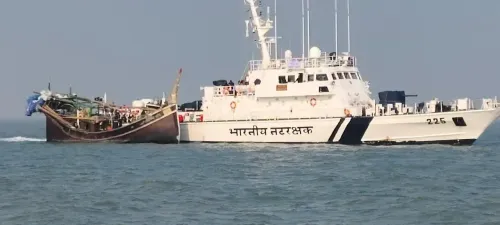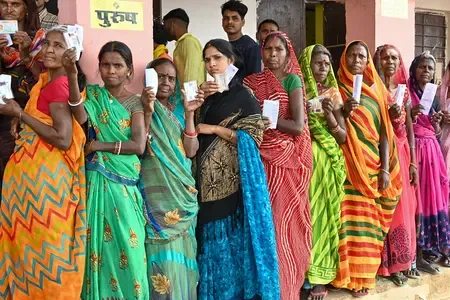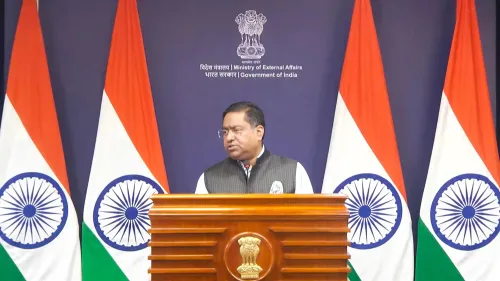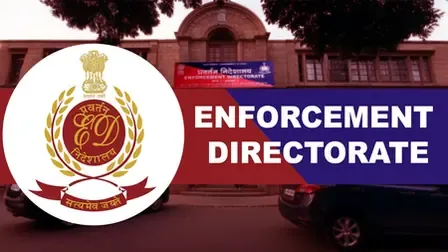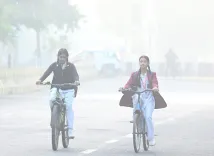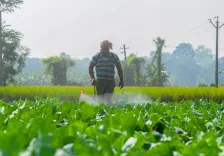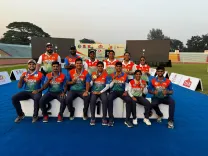Is the Tying of Cattle in Public Streets a Human Rights Concern in Haryana?

Synopsis
Key Takeaways
- Human Rights Violation: Tying cattle in public spaces infringes on residents' rights.
- Health Concerns: The situation poses risks to public health, particularly for vulnerable groups.
- Administrative Negligence: The Municipal Council's inaction reflects broader governance issues.
- Government Plans: A blueprint exists to relocate dairies, but implementation is lacking.
- Community Action: Urgent measures are needed to protect citizens and uphold human rights.
Chandigarh, Nov 17 (NationPress) The Haryana Human Rights Commission has raised alarms regarding the practice of tying dairy cattle in public streets of Bhiwani town, highlighting the unhygienic, obstructed, and unsafe conditions that ensue.
The commission noted that despite numerous complaints and requests, the Municipal Council of Bhiwani has not taken any preventive or corrective measures, indicating a failure in administrative responsibilities towards public cleanliness and accessibility, which directly impacts the fundamental human rights of local residents.
Chairperson of the Human Rights Commission, Justice (retd) Lalit Batra, stated that securing cattle on public roads leads to filth, blocked sewage, and barriers to movement, infringing upon the residents’ rights to health, dignity, and a clean environment. This lack of administrative action significantly affects the rights of residents, especially children and the elderly, regarding their freedom of movement, health, and dignity.
Furthermore, this negligence infringes upon Article 25 of the Universal Declaration of Human Rights (UDHR), which asserts that everyone is entitled to an adequate standard of living, including hygiene and a clean environment. It also violates Article 12 of the International Covenant on Economic, Social and Cultural Rights (ICESCR), which emphasizes the right to the highest attainable standard of physical and mental health.
The commission pointed out that the Municipal Council's failure to keep public spaces clean and accessible constitutes a violation of the Right to Life as stated in Article 21 of the Constitution of India, which encompasses the right to live with dignity, a clean environment, and safe surroundings. Such civic negligence also infringes upon Section 2 (d) of the Protection of Human Rights Act, 1993, which safeguards rights related to life, liberty, equality, and dignity.
Justice Batra remarked that dairy farming within municipal limits is becoming a prevalent issue across the state, leading to ongoing civic and public health challenges.
The state government has recognized this issue and has devised a detailed plan to relocate dairies outside municipal boundaries, aiming to enhance cleanliness, diminish pollution, and safeguard public health. However, while this blueprint is prepared, it has yet to be finalized or fully enforced.
The commission believes that effective execution of this policy, alongside coordinated efforts from municipal authorities, is vital to tackle this growing issue and ensure clean urban environments in alignment with the state’s health and sanitation goals.
Justice Batra observed that the current situation exemplifies a prima facie case of a breach of the residents' basic human rights in Dwarakan Gali and reflects a lack of administrative concern. The circumstances demonstrate that the civic administration has neglected its legal duties, leading to environmental degradation and infringement of the fundamental rights of the residents.
Puneet Arora, the commission’s Information and Public Relations Officer, mentioned that considering the gravity of the allegations and the available facts, Justice Batra has mandated that the District Municipal Commissioner and the Municipal Council present a factual report within eight weeks of receiving the order, with the next hearing scheduled for January 27, 2026.

